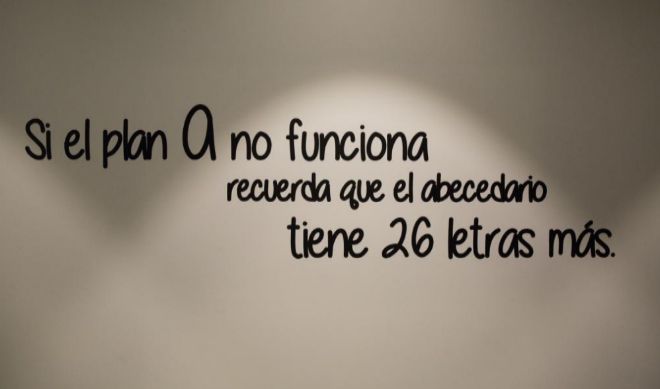- Environment.The smartphone, an ally to recycle more and better
- Environment. Classrooms, at the service of nature
It is one thing to know something in the abstract - the floor slips - and another thing, to see it in person - you have fallen on your buttocks -. We all know that it is not the same to throw the trash insanely than to properly separate the waste. But moving from theory to practice sometimes requires a push in the right direction. It is not the same to know the general importance of recycling, a process in which the society as a whole participates, that we calculate in daily life the concrete contribution we make with each gesture.
That the waste container instantly returns that information to us - "congratulations, you just helped the environment", accounting for the exact emission savings - or reprimand us if we are wrong with the bucket, it could be exactly that kind of push. In fact, the technology has been developed in Spain, through the non-profit organization Ecoembes , and it is ready. It is only necessary to adjust details, after analyzing the results of the pilot project, so that it can be implemented on a large scale.
The system was tested between March and December 2019 in four small Catalan towns -San Boi de Llobregat, Igualada, Granollers and Pla de L'Estany- two universities -Politècnica de Catalunya and Rovira i Virgili- and a hospital -Germans Trias i Pujol-.
There are two modalities. In public places, the container immediately calculates the positive environmental impact of having deposited a waste in the right place and congratulates the citizen. To do this, the user does not have to do anything, except, obviously, throw the garbage well. But the system, called Recycling 5.0 and developed in The Circular Lab , the innovation center of Ecoembes in Logroño, allows a more complex participation: through an app on the mobile, taking a photo of the waste and the QR code of the container, each Recycling action is saved, computed and added to the user's personal account.
Once each participant has their recycler profile, several things can be done. The first is that their collaboration becomes points, called recycles , redeemable for two kinds of prizes: either they are transferred to a social or environmental organization, or they become tickets for raffles. The prize is always a sustainable product, donated by collaborating entities. And never too expensive: it's about engaging people in a long-term sustainable system.
Another possibility is that, in public centers, the container itself displays on a screen the ranking of those who recycle the most. Right there, if the user connects, he can instantly donate the points he has just generated or has accumulated, or sign up with them to the draw. You can also manage all this from your mobile.
One of the objectives of this first phase has been precisely to validate what kind of incentives work best. And here lies the first surprise.
As Denisa Gibovic, director of the Blue Room startup, who collaborates with The Circular Lab in the development of the system, explained, users mostly chose individual incentives in the previous questionnaires. But, as they are using the system, a tendency has been detected to benefit more and more from the donation modality .
The system starts from the idea that technology does not transform the usual and simple gesture of littering too much, but it does turn the recycling action into something much more concrete: the contribution is measured accurately and you can choose what is done with the points generated or to which concrete social work - among those that collaborate in the system - wants to help with them.
Technological half, social half
"A few years ago, this could not have been done," explains Zacarías Torbado, coordinator of The Circular Lab. But technology is only half of the system. The other, also fundamental, is to analyze in detail all the information obtained in the pilot study about what makes people participate and how collaboration can be optimized.
So far, 9.1% participation has been achieved in the places where the system has been tested, a fact that Torbado considers "very good" for a first phase, which will be subject to successive improvements after scrutinizing the huge amount of data that users generate.
"Surely we will expand its implementation, but we still know how much or how," warns Torbado. What is clear to those responsible for the project is that both administrations and citizens are asking for this kind of initiatives, and that technology will be fundamental.
« Society is already prepared to interact with artificial intelligence and technology . We see it every day. On mobile phones, without our being aware, we are receiving specific information. And the same thing happens with recycling ”, Ana Rivas adventure, Innovation coordinator at The Circular Lab.
THE RECYCLING OF THE FUTURE. Series on Circular Economy in collaboration with Ecoembes
According to the criteria of The Trust Project
Know more- science
- Science and Health
Controversy Javier Bardem apologizes for calling Almeida "stupid" and he wonders "what merits" he has to read a manifesto for the Climate
Climate crisisThe director of Climate Change of the Government: "The street and science are asking us for ambition"
Climate crisis: Madrid Climate Cure: Global warming of politics

